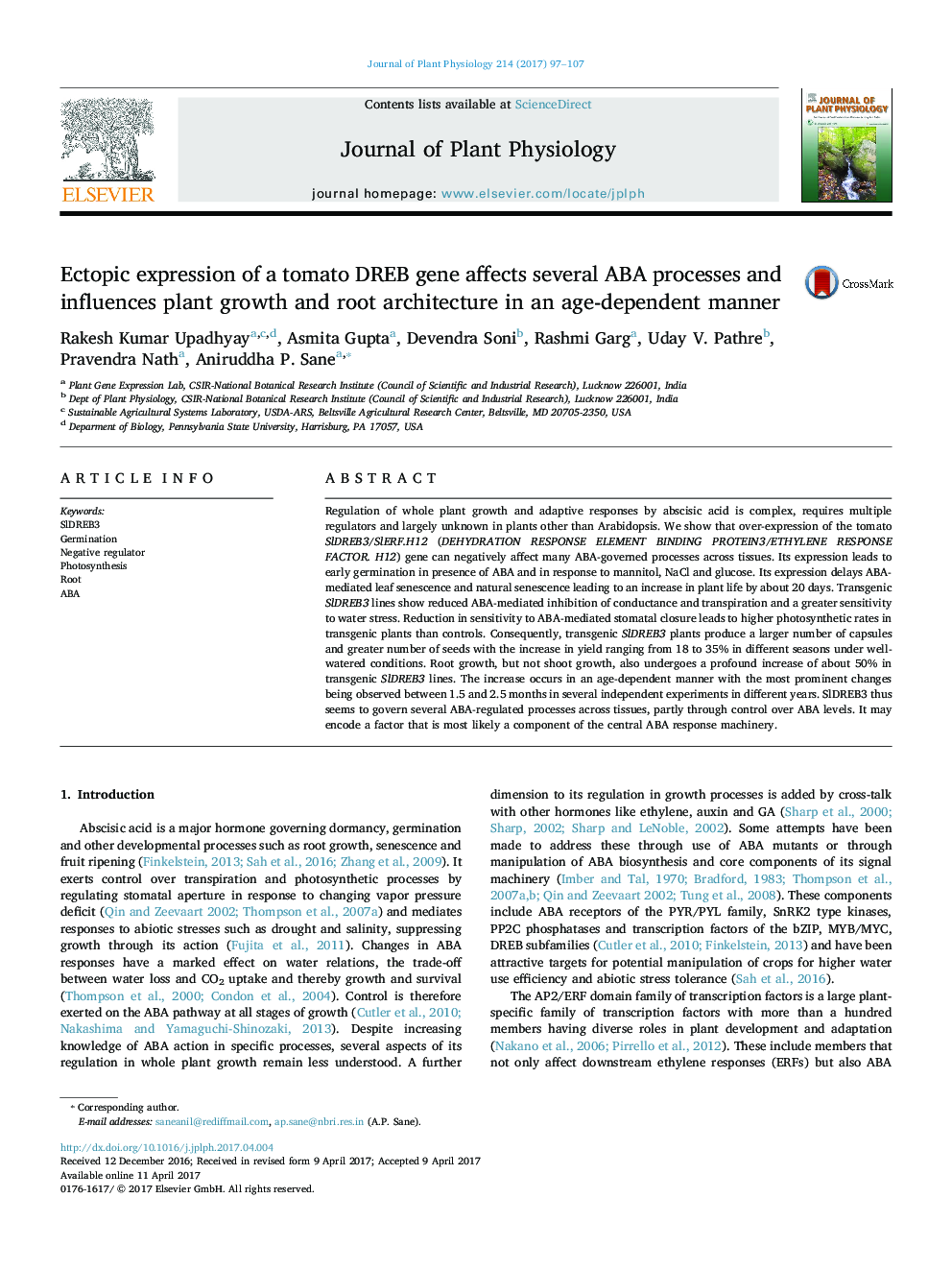| Article ID | Journal | Published Year | Pages | File Type |
|---|---|---|---|---|
| 5518087 | Journal of Plant Physiology | 2017 | 11 Pages |
Regulation of whole plant growth and adaptive responses by abscisic acid is complex, requires multiple regulators and largely unknown in plants other than Arabidopsis. We show that over-expression of the tomato SlDREB3/SlERF.H12 (DEHYDRATION RESPONSE ELEMENT BINDING PROTEIN3/ETHYLENE RESPONSE FACTOR. H12) gene can negatively affect many ABA-governed processes across tissues. Its expression leads to early germination in presence of ABA and in response to mannitol, NaCl and glucose. Its expression delays ABA-mediated leaf senescence and natural senescence leading to an increase in plant life by about 20Â days. Transgenic SlDREB3 lines show reduced ABA-mediated inhibition of conductance and transpiration and a greater sensitivity to water stress. Reduction in sensitivity to ABA-mediated stomatal closure leads to higher photosynthetic rates in transgenic plants than controls. Consequently, transgenic SlDREB3 plants produce a larger number of capsules and greater number of seeds with the increase in yield ranging from 18 to 35% in different seasons under well-watered conditions. Root growth, but not shoot growth, also undergoes a profound increase of about 50% in transgenic SlDREB3 lines. The increase occurs in an age-dependent manner with the most prominent changes being observed between 1.5 and 2.5 months in several independent experiments in different years. SlDREB3 thus seems to govern several ABA-regulated processes across tissues, partly through control over ABA levels. It may encode a factor that is most likely a component of the central ABA response machinery.
